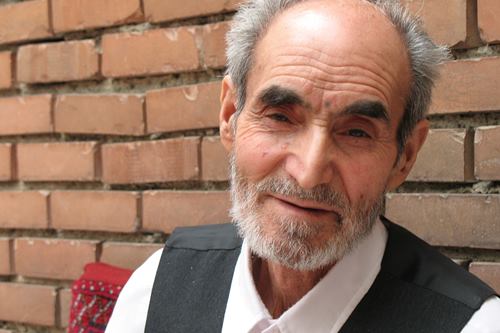I was re-reading Grove and Panzer's book Resolving Traumatic Memories recently. This got me thinking about the clean language opening question. David Grove invented Clean Language. I like to think I use clean language well. But it was good to be reminded of how Grove saw the need for clean language in absolutely everything.
He talks about the need to use clean language from the moment you meet your client.
Clean Language Opening Question
He says that the phrase 'How can I help you today?' is one of the least useful ways of starting a session. His core idea is that the therapist should become invisible, and allow the client to express their own feelings, memories, symbols and semantics without any interference. If you want to learn the exact contents of the client's inner experience, if you want to really know why they smoke, then you need to avoid putting your own assumptions in there. Asking how you can help implies that the client needs help, and forces the client to think about what kind of help they need from the therapist, and therefore is not clean language. In starting the therapist needs to 'slide in gently, to be unsure and undefined' (p15)
The first question to the client is important because 'it is like the first move in chess'. Everything flows on from that first move. Questions are used to shape the interaction between client and therapist. The first question should do as little as possible to influence the client's inner environment. By asking 'and what brings you here' you imply that there is problem driving them, and they will focus on identifying a problem for you. 'What can I do for you?' implies that they need something from you that they do not already have. 'What seems to be the matter?' implies that they do not know their own mind, and assumes the therapist must have some better insight than the client has. 'What is your problem?' assumes there is one problem. And so on.
Getting the Opening Question right
According to Groves, the correct way to begin a session is to ask 'What is it that you want?'. This focusses the client on the outcome they desire, and lets them respond with an abstraction that is located in the future.
I have fallen into the habit of asking 'What would you like to have happen?', which according to Groves is cleanish, but restricts the client. I am going to start with 'What it is that you want?' and see if it does lead me to a better understanding of the client's needs.
What do you think?
is clean language important to you? Do you think Groves was right about the first question?
He is highly regarded in the hypnotherapy community. He is Vice President of the New Zealand Association of Professional Hypnotherapists (NZAPH).
He is regularly consulted for advice by other hypnotherapists around the world. He is known for the quality of his published scripts. He presents at international conferences and has published on hypnosis and advanced hypnotherapy.
He lives in Wellington New Zealand with his wife Trish and a cat called Parsnip.
email: davemason@besthypnosisscripts.com
- AfterwardsnessNachträglichkeit Deferred action - 2019-04-30
- Low Fat Diet Mental Health - 2019-04-12
- Paranormal beliefs in hypnotherapy - 2019-04-09






